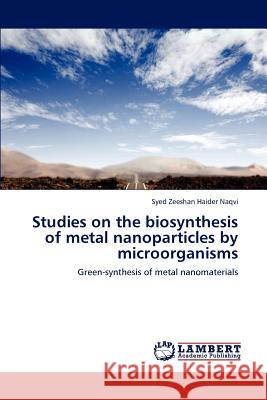Studies on the biosynthesis of metal nanoparticles by microorganisms » książka
Studies on the biosynthesis of metal nanoparticles by microorganisms
ISBN-13: 9783846591420 / Angielski / Miękka / 2011 / 108 str.
Green synthesis of nanomaterials is gaining importance day by day especially concerned due to environmental reasons. An array of physical, chemical and biological methods have been used to synthesize nanomaterials. In order to synthesize noble metal nanoparticles of particular shape and size, specific methodologies have been formulated. Physco-chemical and other reduction techniques have been used successfully to produce nanoparticles, but they remain expensive and involve the use of hazardous chemicals. Therefore, there is a growing concern to develop environment-friendly and sustainable methods. Since the synthesis of nanoparticles of different compositions, sizes, shapes and controlled dispersity is an important aspect of nanotechnology new cost effective procedures are being developed. Microbial synthesis of nanoparticles is a green chemistry approach that interconnects nanotechnology and microbial biotechnology.
Green synthesis of nanomaterials is gaining importance day by day especially concerned due to environmental reasons. An array of physical, chemical and biological methods have been used to synthesize nanomaterials. In order to synthesize noble metal nanoparticles of particular shape and size, specific methodologies have been formulated. Physco-chemical and other reduction techniques have been used successfully to produce nanoparticles, but they remain expensive and involve the use of hazardous chemicals. Therefore, there is a growing concern to develop environment-friendly and sustainable methods. Since the synthesis of nanoparticles of different compositions, sizes, shapes and controlled dispersity is an important aspect of nanotechnology new cost effective procedures are being developed. Microbial synthesis of nanoparticles is a green chemistry approach that interconnects nanotechnology and microbial biotechnology.











